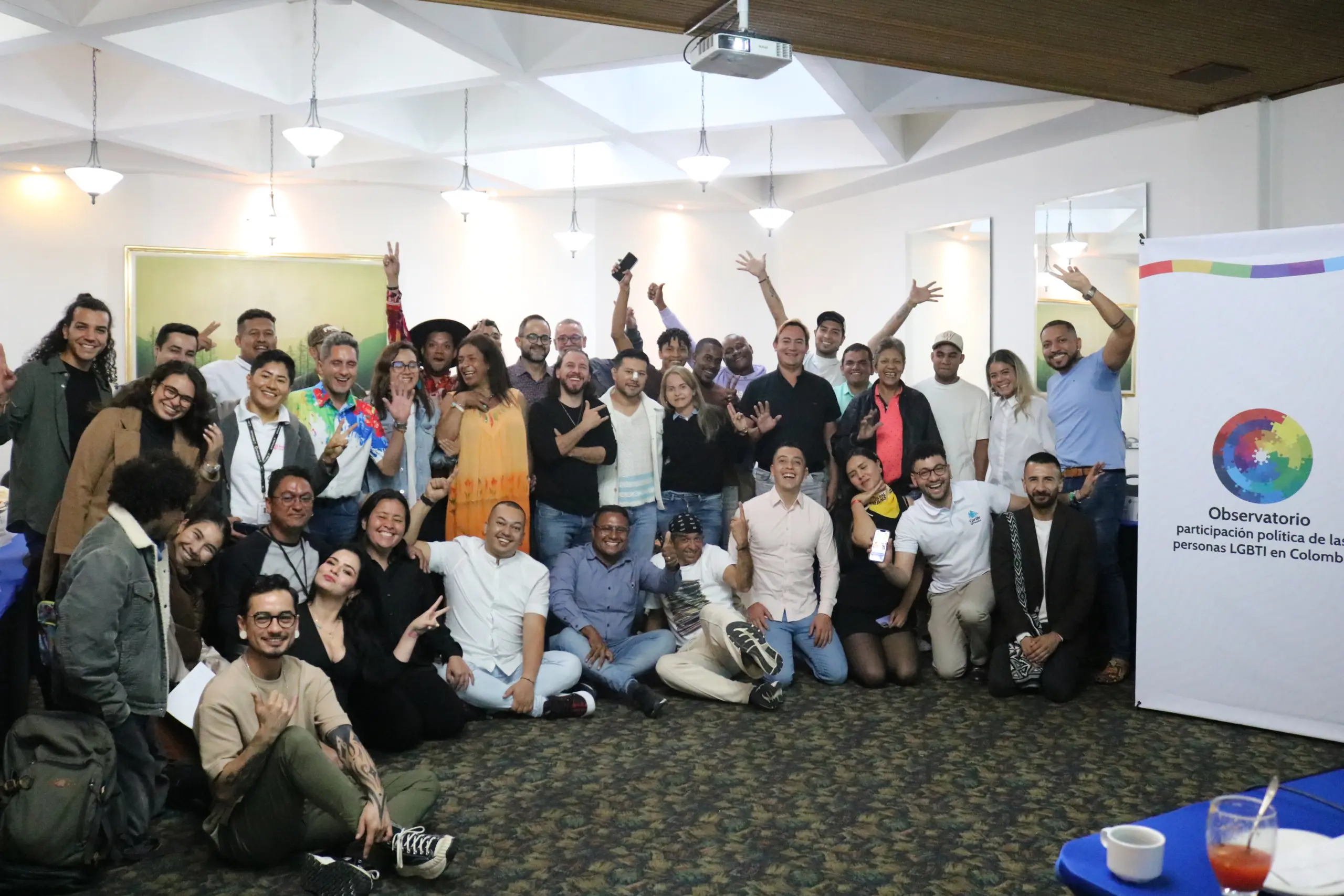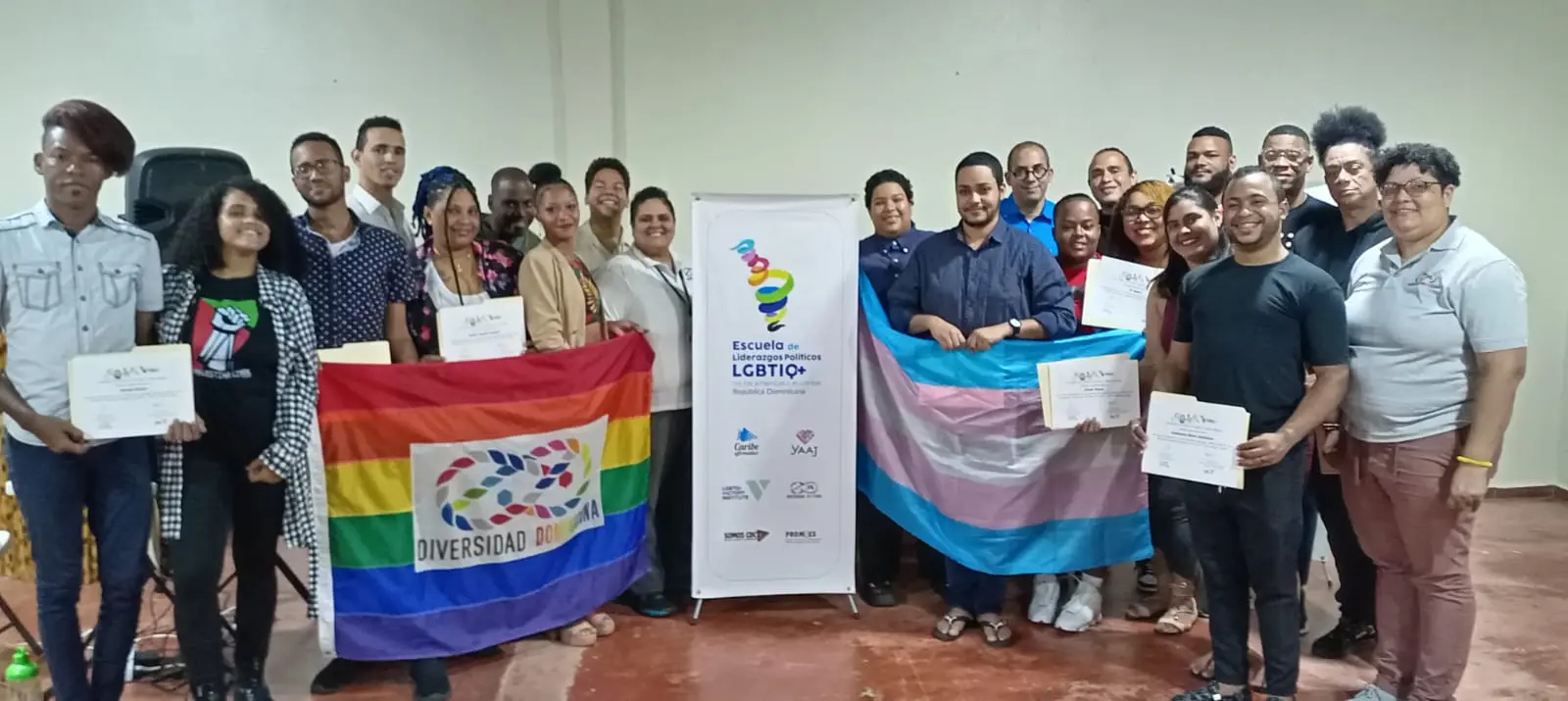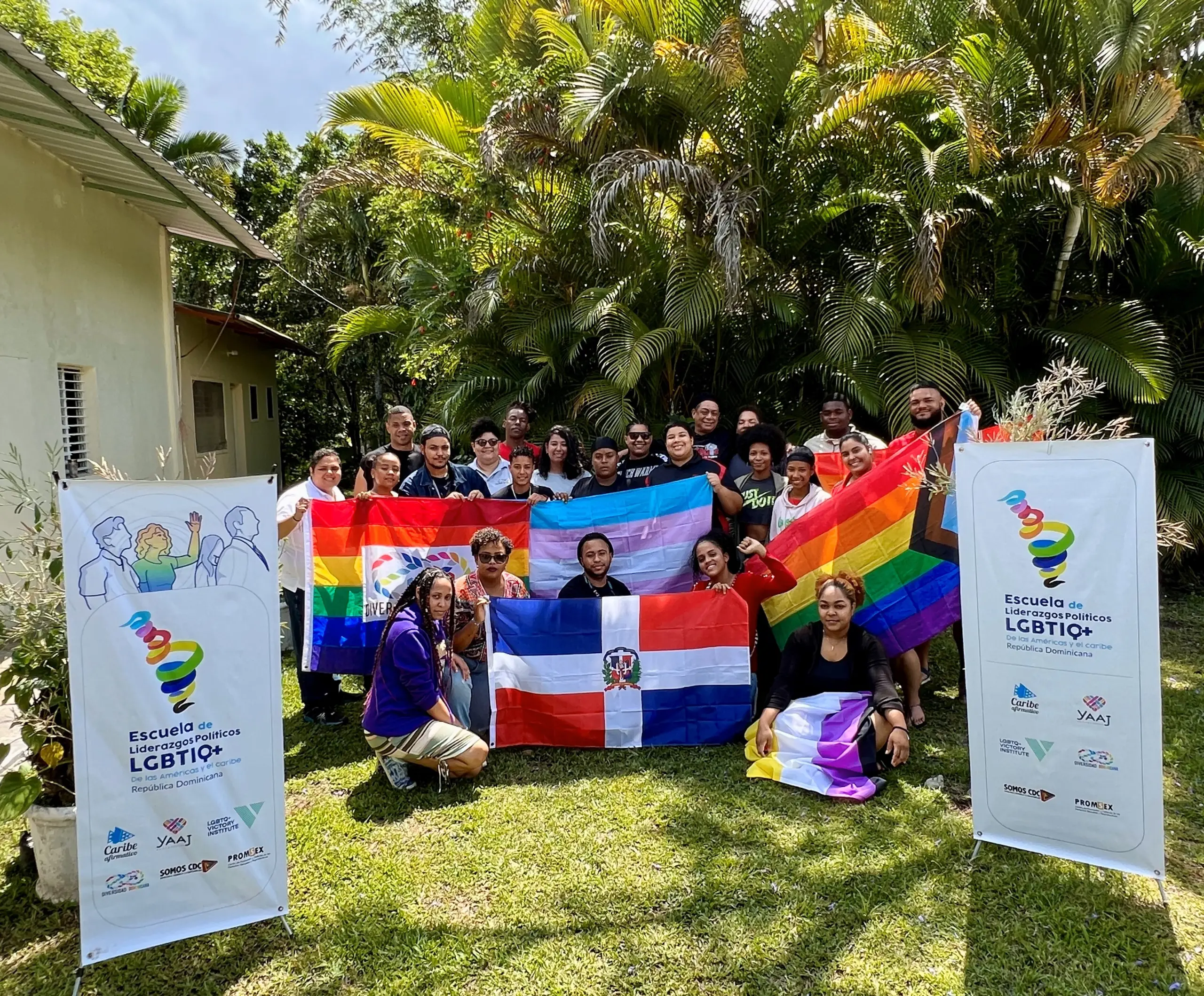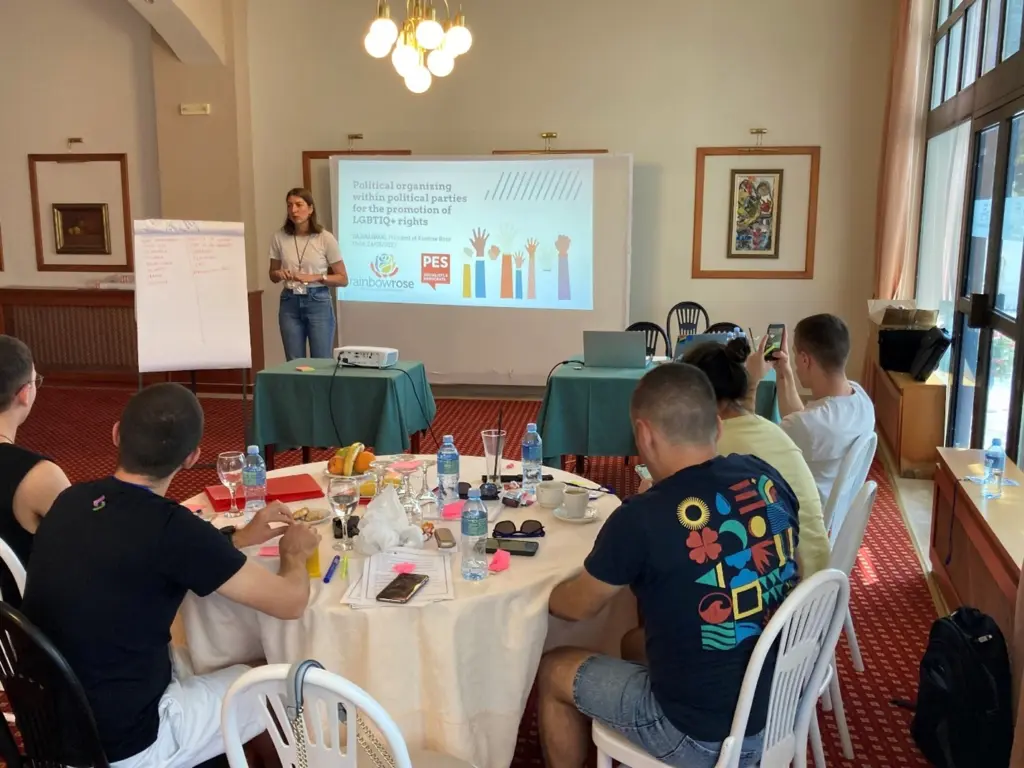
Though the summer season is coming to a close, Victory Institute’s global team has been staying busy, kicking off a variety of political participation trainings this month. Most notably, we recently visited North Macedonia for our week-long Summer School for LGBTQI+ Political Participation and Social Change.
Background
In coordination with our local partner, the Helsinki Committee for Human Rights, we organized a training program resulting in the first Summer School for LGBTIQ+ Political Leadership and Social Change in the nation.
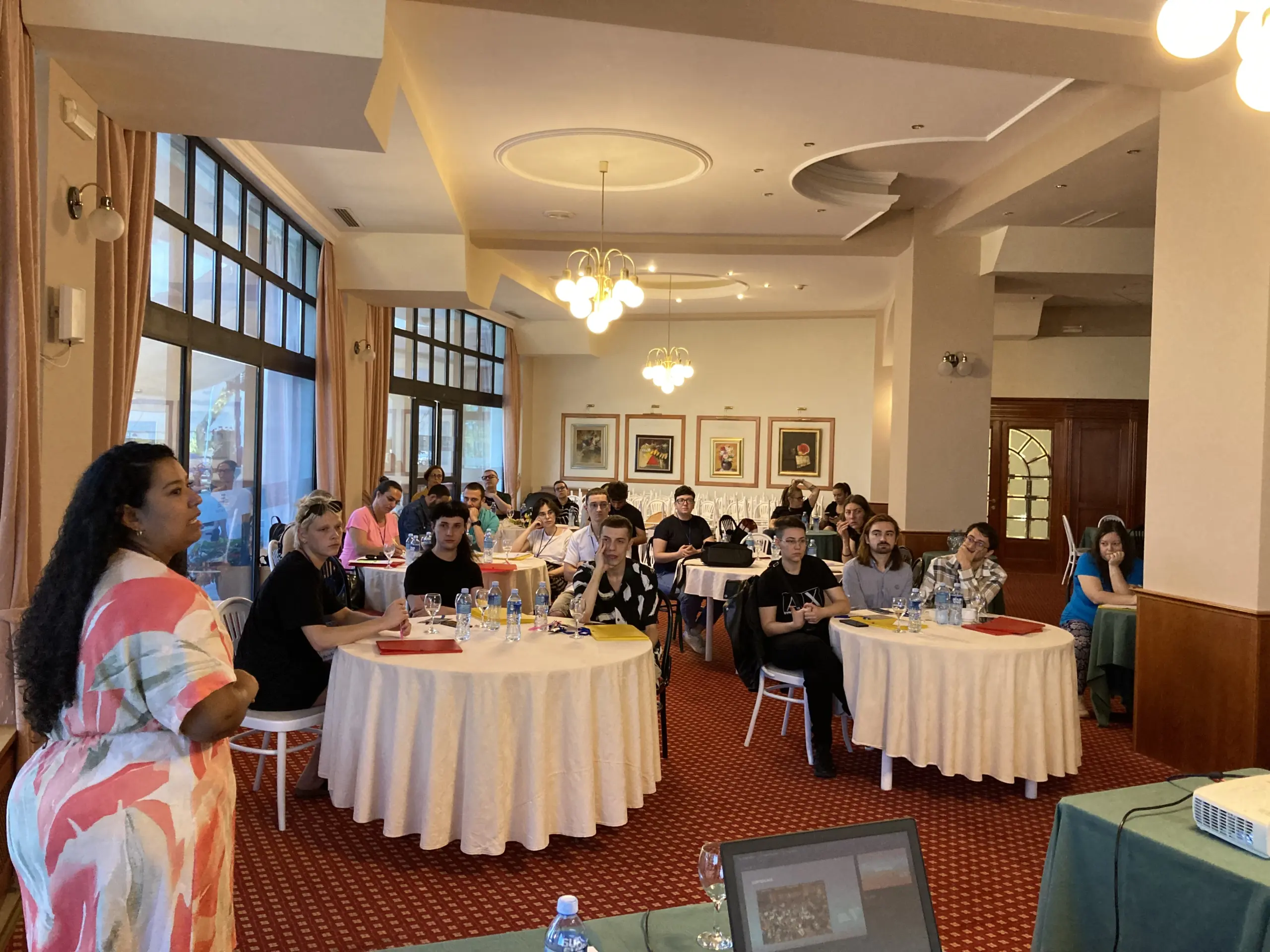
(Victory Institute welcoming the Summer School cohort and discussing LGBTQI+ people as agents of change)
Training Specifics
On the banks of Lake Ohrid, acohort of 13 participants spent a week diving into a 6-day training program that drew from the knowledge of lecturers renown both in North Macedonia as well as the greater Balkans. The participants engaged with each other and lecturers on topics ranging from existing legal frameworks for human rights and their importance, the history of queer politics as well as history of LGBTIQ+ activism in North Macedonia, and diving into strategies to address pain points in moving from community and political activism to political engagement and participation.
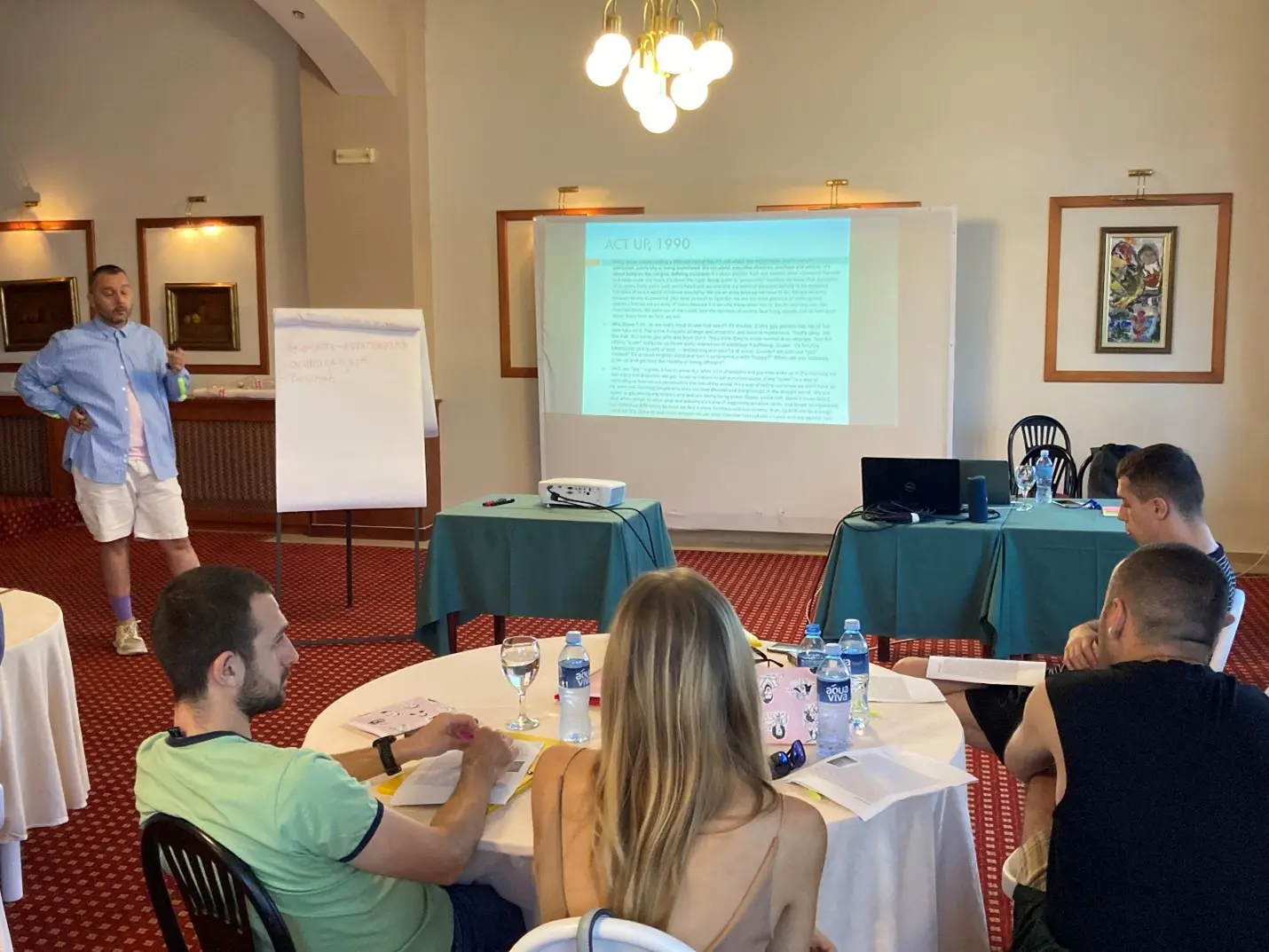
(Session on the history of LGBTQI+ politics)
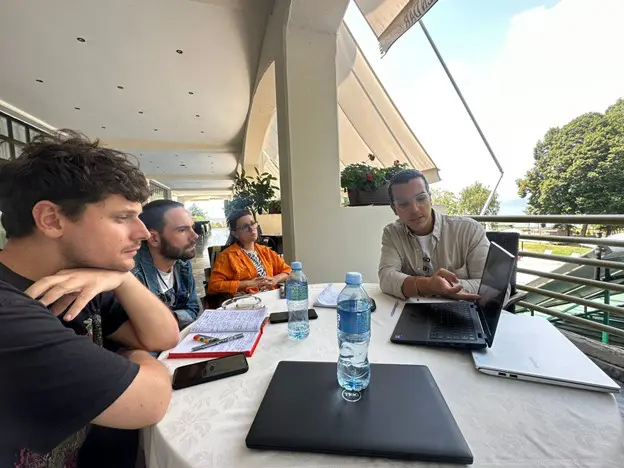
(Presenting Victory Institute’s other regional curriculum examples)
What is the opportunity for increased LGBTIQ+ political participation? Why North Macedonia?
It’s important to start by highlighting just how unique North Macedonia is and the precedents that it has set as a nation and for LGBTIQ+ rights within the Balkan region. From the week spent there, we realized that history is quite literally being made in real-time:
- North Macedonia is youthfully exuberant as a nation! Youthful in that it has only been 32 years of being independent nation, gaining independent status in 1991 upon the breakup of Yugoslavia and shifting to a parliamentary democracy thereafter; exuberant in that throughout its short history, civil society efforts to defend democratic norms, fight against government corruption and support human rights expansion have been numerous and robust. From conversations both with Helsinki Committee staff and participants, there is a true desire among civil society members to engage in democratic processes.
- Speaking with Kocho Andonovski, Program Director for Helsinki Committee’s LGBTI Support Center, in Macedonia there had been no public/societal acknowledgement of LGBTQI+ people until he publicly came out on television in 2005. Additionally, Skopje Pride, the largest in the Balkan region, is only in its 4th edition this year in 2023. Though young in its programming, it is a regional example that draws crowds and support from Macedonian society outside of the LGBTQI+ community and continues to grow larger every year.
- Our partner Helsinki Committee (formed in 1994) has continuously been at the forefront of civil society efforts to defend democratic norms and human rights in-country, playing an integral role in providing legal support and services to marginalized groups since its inception, as well as leading coalition efforts during 2016’s Colorful Revolution, a series of protests which ultimately resulted in early parliamentary elections and introducing a change in party rule. This speaks to its reputation as a respected actor in Macedonian civil society.
- Despite these gains, there are still no openly out politicians in Macedonian politics and persecution against LGBTQI+ people continues to persist today.
“If you’re not at the table, you’re on the menu” – Expanding into greater political participation
This statement stuck out during the parting session led by Helsinki Committee and Victory Institute with training participants, engaging them to think more on the true and actionable steps needed to gain a seat at the political table in Macedonia. Ending our session, we asked the following questions both to our partners as well as participants: what can we do to leverage the strong and unique position that Helsinki Committee is in to expand LGBTQI+ activism to increased political participation? Do they believe that Macedonia is ready for an openly LGBTQI+ candidate?
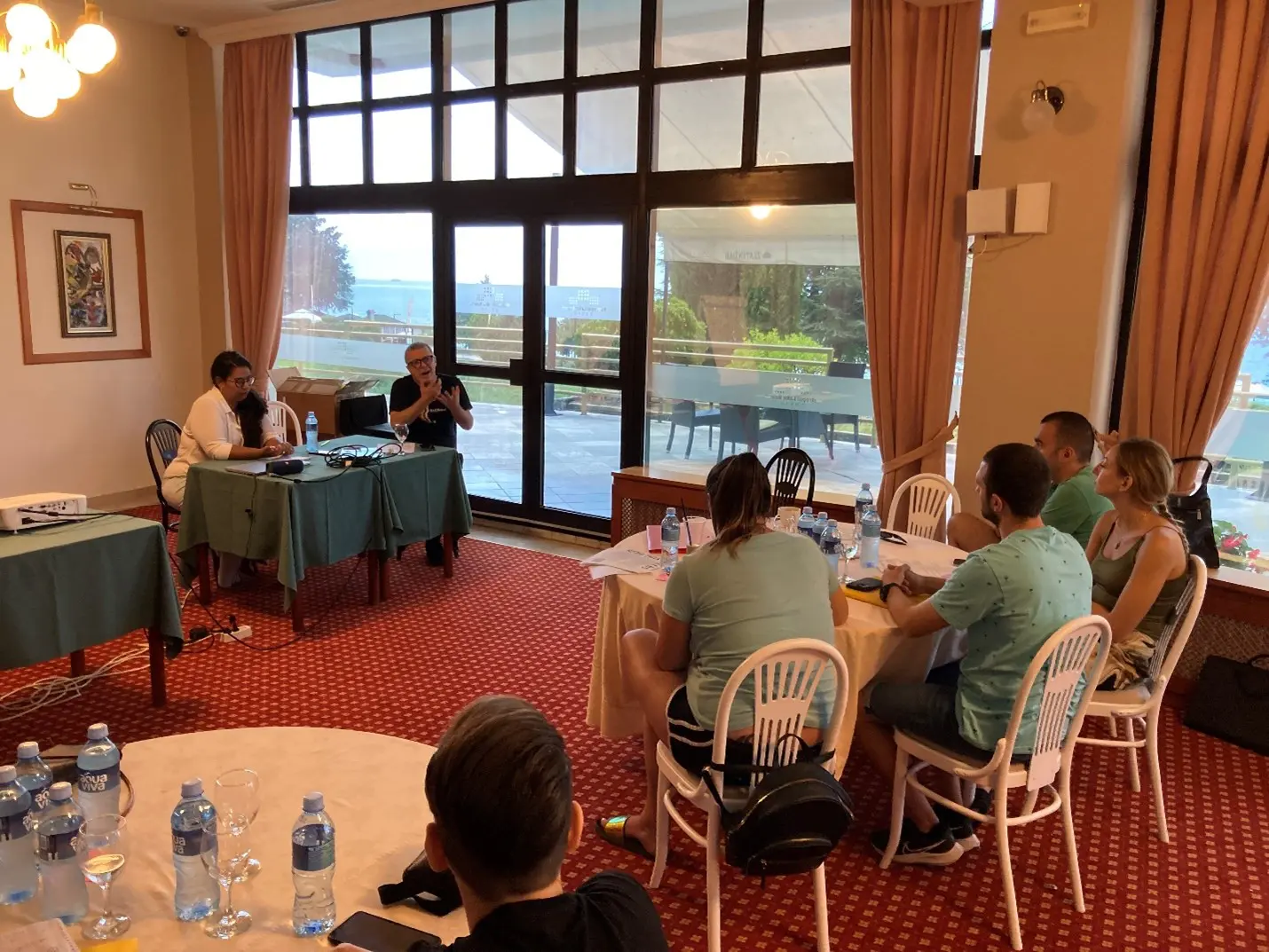
(Closing session between Kocho Andonovski from Helsinki Committee and Alhelí Partida, Sr. Director for Global Programs at LGBTQ+ Victory Institute)
The responses were varied, highlighting that there is much more work to do in order to attain LGBTQI+ electoral representation. That being said, we ended a successful first training camp with the acknowledgement that the foundations and the desire are all there in order to keep moving the needle forward.
After all of our learnings and exchange from this training, Victory Institute and Helsinki Committee staff will continue to hold planning meetings this Fall for upcoming trainings in 2024. We seriously can’t wait to see how we’ll be able to build upon this blossoming program and see what the next years have in store.
